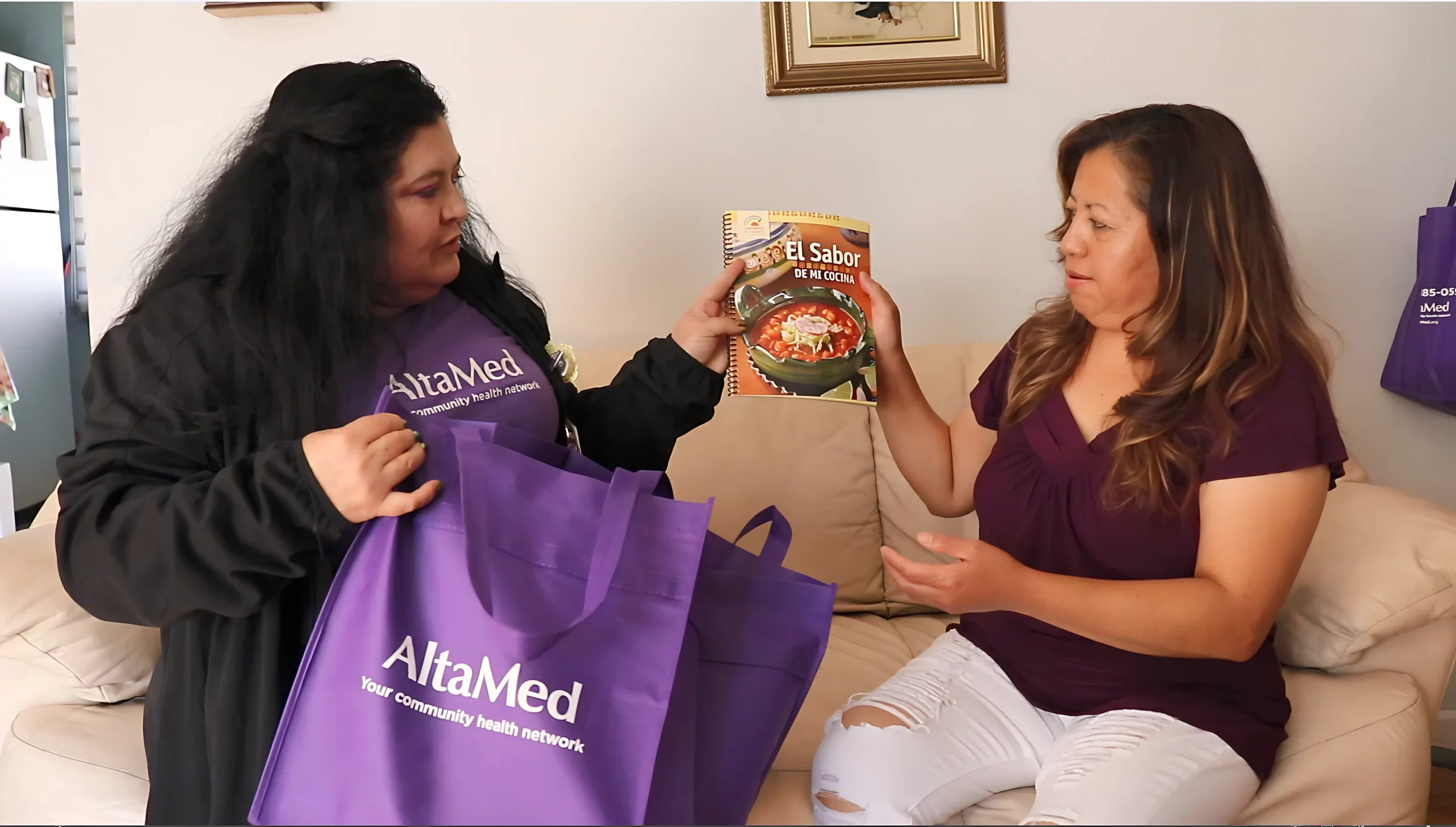Changing Lives, One Home Visit at a Time

Balancing her chronic health problems with the endless demands of home life drove Mari into a deep depression. Through AltaMed’s Enhanced Care Management program, Mari was connected with community health worker Maria Sánchez, who helps patients with complex medical needs access the medical care and social support they deserve.
Individuals with chronic conditions often face significant challenges managing their health, especially if they struggle with financial hardship or other limitations that affect their access to medical care. For AltaMed patient Mari, juggling family commitments while living with multiple medical issues creates significant barriers to getting the care she desperately needs.
“I stopped taking care of my grandson, and I stopped going to the park to exercise. I felt frustrated; I felt depressed,” says Mari.
Without a family doctor, Mari made countless trips to the emergency department over the years—at one point, visiting three to four times within a single month.
At her breaking point, Mari realized that without immediate help, she would jeopardize her ability to care for her family. She reached out to AltaMed for support and was introduced to community health worker Maria Sánchez.
Finding a Friend and an Advocate
When Maria Sánchez first came into Mari’s home, it felt like a visit from an old friend. “Maria has a special way of making her patients feel safe and heard. I feel comfortable confiding in her and know she will help me with anything I need,” says Mari.
CHWs like Maria Sánchez are frontline workers and trusted members of the community who offer patients with complex medical, behavioral, and social needs a steady shoulder to lean on.
As a part of the Enhanced Care Management program, CHWs go out into local communities to meet high-need patients where they live. They specialize in connecting patients to medical and behavioral health services, providing health education, and addressing barriers that prevent people from leading a healthy life. Without programs like these, patients with chronic illness can fall through the gaps without a primary care provider who can work with them to build a long-term care plan.
Having depression, epilepsy, and pre-diabetes, each day was a struggle for Mari. Once connected with CHW Maria, she began seeing a psychologist and started a plan to bring her pre-diabetes under control.
Mari enrolled in online nutrition classes where she learned about healthy eating. After sharing her struggles with food insecurity, she was also connected to a program that offered free meals.
The nutrition class helped Mari track her walks, choose healthier foods, and plan dinner times—practical steps that keep her on track toward better health.
“I have realized that I must prioritize my well-being, because if I am not in good health, how can I effectively care for my family?” said Mari. “I want to tell others not to wait to get help until they’re at their breaking point.”
A Path Toward Excellent Health
Today, Mari is much more comfortable scheduling appointments with her doctors and arranging transportation to the AltaMed clinic. She has also learned how to recognize when she should go to the emergency room and knows the alternatives available to her.
“Mari successfully completed all of her behavioral health sessions and has shown significant growth in managing her overall health,” says CHW Maria. “This level of independence is a major step forward for her.”
Grateful for the support she received, Mari is passionate about helping her family tackle their own health challenges more effectively. Now, her entire family, including her husband, daughter, and son, are patients at AltaMed, benefiting from the same level of care and support she received.
All contributions are tax deductible to the extent allowed by law.
Our Tax ID number is: 95-4090420.
© 2020 AltaMed Foundation – All Rights Reserved



